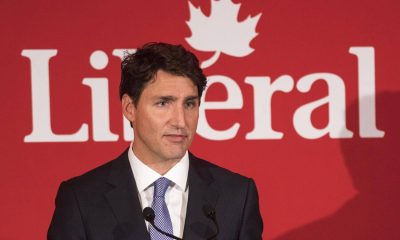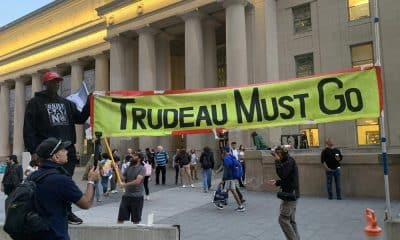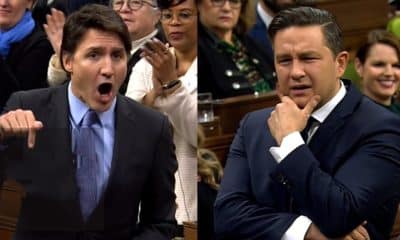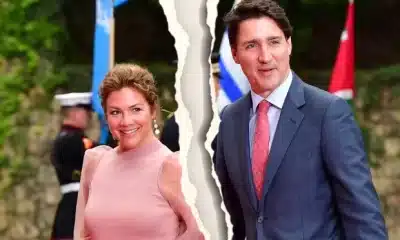Politics
New York Times Op-ed Slams Canada’s Justin Trudeau

Political careers often end in failure — a cliché that exists because it too often happens to be true. Justin Trudeau, one of the world’s great progressive leaders, may be heading toward that moment. In a recent interview he acknowledged that every day he considers leaving his “crazy job” as Canada’s prime minister. Increasingly, the question is not if he will leave but how soon and how deep his failure will be when he goes.
At stake is something that matters more than one politician’s career: Canada’s contemporary liberal and multicultural society, which just happens to be the legacy of the prime minister’s father and predecessor, Pierre Trudeau. When you fly into Montreal, you land in Trudeau airport, and that’s because of Pierre, not Justin.
The threat to that liberal tradition is not all Justin Trudeau’s fault, of course. The right-wing tide overwhelming global politics has come late but with pent-up vigor to Canada. For several years now, polls have shown Mr. Trudeau’s Liberals at lows from which no Canadian political party has ever recovered in elections. In a recent by-election, in a key suburban district of the Greater Toronto Area, the Conservative Party beat the Liberals by a lopsided 57 percent to 22 percent, a swing of nine percentage points to the Conservatives.
But polls and by-elections can be poor predictors of election viability. A better indicator is the flummoxed figure of Mr. Trudeau himself, who seems increasingly out of touch in the new world of division and extremism.
Part of Justine Trudeau’s problem is simple exhaustion, both his own and Canadian voters’. He has been in government for almost eight and a half years. During that time, he has been one of the most effective progressive leaders in the world. His government cut Canada’s child poverty in half. He legalized marijuana, ending roughly 100 years of nonsense. He made large strides in reconciliation with Indigenous Canadians. He renegotiated NAFTA with a lunatic American president. He handled Covid better than most. You don’t have to squint too hard to recognize that he is one of the most competent and transformative prime ministers this country has ever produced.
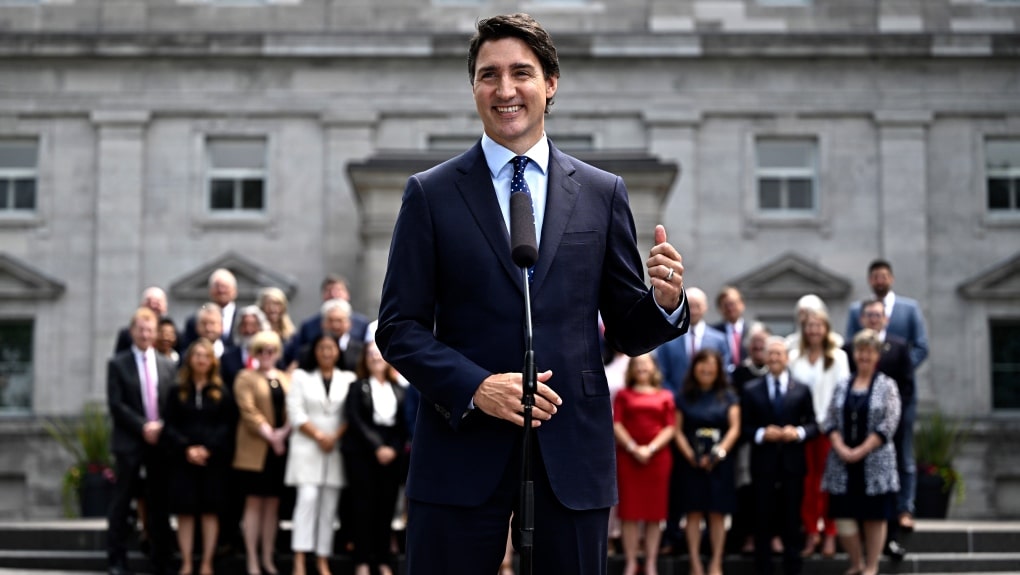
Justin Trudeau talks to media in 2015: File Image
But an era has passed since the start of that halcyon time, when Mr. Trudeau stood in front of his first cabinet and, when asked why it was half female, answered, “Because it’s 2015.” Now a new generation has emerged, for which the liberal technocratic order his government represents has failed to offer a path to a stable, prosperous future and the identity politics he once embodied have withered into vacuous schism. The growing anti-Liberal Party sentiment of young people is the biggest threat to his electability.
His opponents are well aware of Mr. Trudeau’s unpopularity with young voters and have focused Conservative attacks on an issue especially important to that cohort: the housing crisis. The soaring real estate market, in which tiny homes in Toronto and Vancouver now regularly cost more than properties in Paris or New York, has been exacerbated by the Trudeau government bringing in over a million immigrants last year without having built the necessary infrastructure to support the communities receiving them.
For decades, Canada has been the only country in the world where the more patriotic citizens are, the more they support immigration. Liberal mishandling of immigration’s impact may well end this blessed state. The housing crisis is the epitome of Mr. Trudeau’s failure: It feels good — it feels righteous — to support immigration. Isn’t that the whole idea behind multiculturalism? But without the proper hardheadedness, without being frank about difficult realities, righteousness quickly sours.
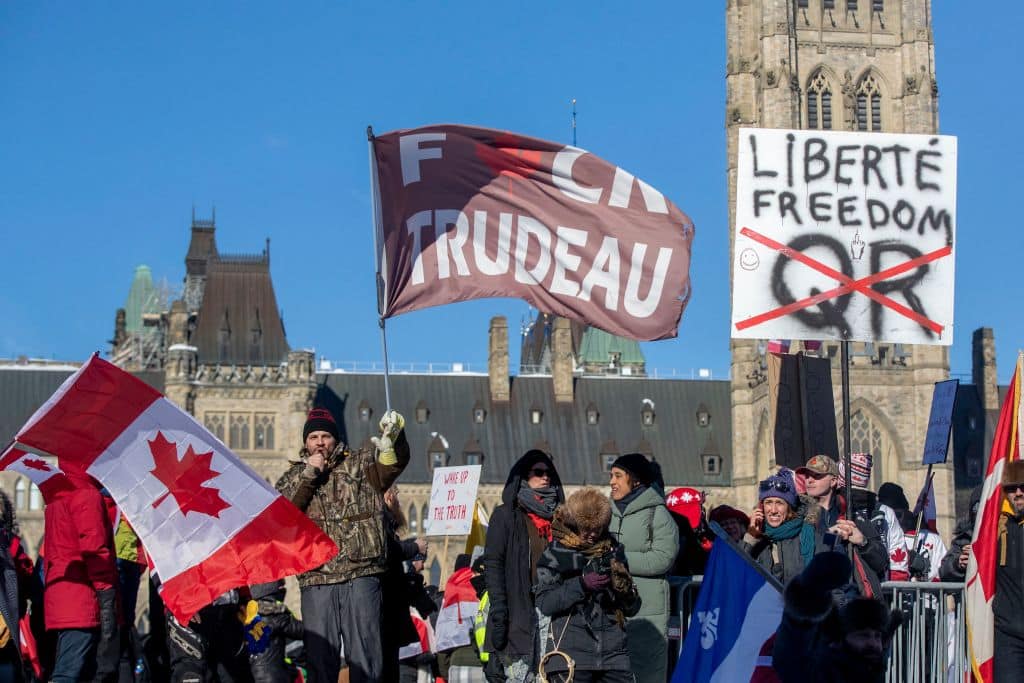
“Freedom Convoy” of some 2,700 trucks protest: CBC Image
The first evidence of the prime minister’s weakness in the face of Canada’s growing polarization was the government response to the so-called Freedom Convoy in 2022, in which anti-vaccine demonstrators held Ottawa hostage for a month. His government decided to take a bureaucratic approach to the disruption, dithering while the truckers entrenched themselves in the city, then using the Emergencies Act to seize several of their bank accounts. A January federal decision found that Mr. Trudeau’s invocation of the act was “not justified.”
Other countries took much simpler approaches to their civil unrest in the aftermath of Covid restrictions. The French used tear gas. The moment a convoy set out from Los Angeles headed for Washington, in imitation of the Canadian convoy, the Biden administration called out the National Guard. Other countries know: There is a time for brute force.
The same fear of confrontation — which, to be fair to Mr. Trudeau, afflicts the entirety of Canadian culture and politics — motivated new online harms legislation, which he proposed in February in an attempt to regulate or at least somewhat contain the internet and social media, from revenge pornography and child sexual abuse material to hate speech. It is, unfortunately, an absurd document that seeks to impose virtue by fiat.
The maximum penalty for promoting genocide — a form of speech crime — is life imprisonment, meaning harsh punishments can be meted out for the vaguest and most subjective of definitions. Equally troubling is the measure that if a Canadian citizen “fears on reasonable grounds” that a hate crime will be committed, the individual can apply for an order that another person be subjected to court-mandated conditions on what that person may say.
No less a figure than Margaret Atwood described the proposed law as “Orwellian.” “It’s Lettres de Cachet all over again,” she wrote on X, referring to the king’s ability in prerevolutionary France to imprison without trial. The spirit behind the new law is the very worst of Canada: Be nice, or else. And it will do nothing to contain the disinformation wave that’s swelling.
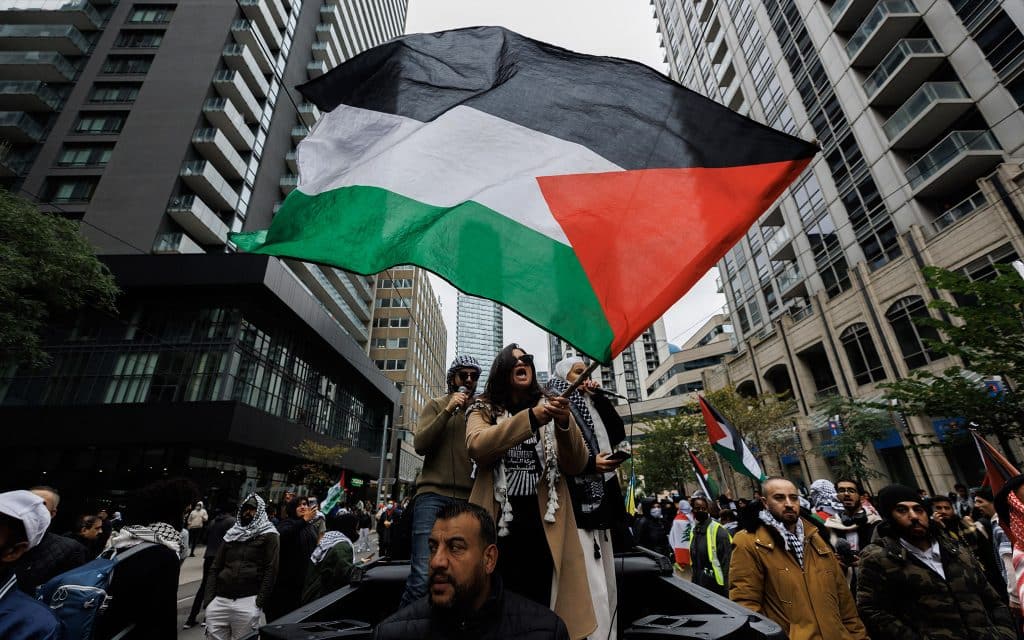
Anti-Israeli demonstrators wave Palestinian flags: Image CBC
But more than any other event, it is the Oct. 7 attack on Israel by Hamas that has exposed Mr. Trudeau’s inability to fight for liberal values. Since that day, the Canadian Jewish community has been subject to violence not seen since the 1930s. A synagogue has been firebombed, a Jewish school shot at, a Jewish hospital targeted by an antisemitic mob, a Jewish-owned bookstore vandalized, a Jewish neighborhood disrupted, a Jewish grocery store lit on fire.
A mob outside a Holocaust Museum in Montreal chanted, “Death to the Jews.” Mr. Trudeau’s response has been pleas for everyone to just get along. “This needs to stop,” he said, referring to the lobbing of a Molotov cocktail at a synagogue. “This is not who we are as Canadians.”
This litany of failures is all the more significant because of Mr. Trudeau’s name. At a moment of crisis for Canadian multiculturalism, he makes a poor contrast with his father. Pierre Trudeau was not just another Canadian politician; he passed the Charter of Rights and Freedoms while establishing Canada’s Constitution as its own and not subject to the British Parliament.
He made no-fault divorce and homosexuality legal. He instituted the official policy of multiculturalism, which made it a matter of law that Canadian citizens were encouraged to practice their religions and maintain their identities.
Pierre Trudeau might have been the most important architect of the liberal Canada, but he was also tough as hell. He famously invoked the Emergency War Measures Act against separatist terrorists in 1970, suspending civil liberties and bringing in the military. When asked by journalists how far he was willing to go, he said, “Just watch me.” Pierre Trudeau knew that the liberal order demands forceful and practical — and occasionally ugly — defense.
His son now seems to believe that telling people to be nice to one another will do. This weakness not only threatens the multicultural society his father founded; it threatens progressive values around the world. For many, Canada seemed a lone candle alight for the values of pluralism and liberalism as they have been extinguished elsewhere in the world.
Justin Trudeau does not have to call an election until 2025. He won elections against the odds before. But time is not on his side. It’s not Pierre Trudeau’s world anymore. It doesn’t much look like Justin Trudeau’s, either.
Source: NY Times





